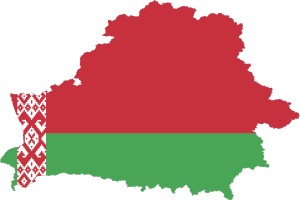
Washington D.C./Stockholm/Minsk: In response to what they claimed the continuing attacks on human rights and fundamental freedoms in Belarus, disregard for international norms and repeated acts of repression, the United States of America, Canada, the European Union and the United Kingdom slapped fresh sanctions against “certain individuals and entities” in Belarus.
In a joint statement, they said they remain committed to supporting the democratic aspirations of the people of Belarus and stand together to impose costs on the regime – and those who support it – for its efforts to silence the voices of independent civil society, media, and all Belarusians seeking to speak the truth about what is happening in their country.
“We again demand that the [President Alexander] Lukashenka regime immediately and completely halt its orchestrating of irregular migration across its borders with the EU. Those, in Belarus or in third countries, who facilitate illegal crossing of the EU’s external borders should know this comes at a substantial cost,” they stated.
Also read: G7 condemns Belarus’ “orchestration of irregular migration” across its border
They further called for the regime to unconditionally and without delay release its almost 900 political prisoners, end its campaign of repression, and implement the recommendations of the independent expert mission under the Organization for Security and Cooperation in Europe’s (OSCE) Moscow Mechanism and take meaningful action to address the concerns raised under the OSCE Vienna Mechanism.
The regime should promptly enter into comprehensive and genuine political dialogue with representatives of the democratic opposition and civil society, facilitated by the OSCE, leading to new free and fair presidential elections under international observation, they stated.
In Stockholm, the US Secretary of State, Antony J. Blinken termed the OSCE as an “invaluable institution, in no small part because it has a comprehensive view of security”.
“It’s not just reflected in military might, but also good governance, democracy, human rights. And I think that approach accords with the reality of the world that we live in,” he said. He added that countries that respect human rights and govern with the consent of their people tend to be more stable, more prosperous, more peaceful, and they make better neighbours. Countries that violate human rights and flout democratic values often sow instability in other countries, and rulers who abuse their power give license to other leaders to do the same.
“I’m grateful to have had the chance to affirm the OSCE’s vital role in safeguarding democracy in Europe and beyond and urge all member countries to be constructive participants in the OSCE rather than obstructing it from contributing to peace and security in Europe,” he said.
However, Russia responded strongly claiming the OSCE to be in a “depressing state” today. “It has fallen hostage to the bloc discipline of the European Union and NATO, and is mired in petty agendas,” Russian Foreign Minister Sergey Lavrov, told the 28th OSCE Ministerial Council meeting in Stockholm, today.
“Our Western partners are striving to replace international law with a “rules-based international order,” which they are trying to establish on the grounds of their own “exceptionalism… Their “liberal values” are being used as tools for shamelessly interfering in the internal affairs of sovereign states,” Lavrov said.
In Belarus capital Minsk, Chairman of the Russian State Duma Vyacheslav Volodin today met with Chairman of the Belarus House of Representatives Vladimir Andreichenko. He asserted that Belarus was a sovereign country and will decide its future itself.
“Today we are facing challenges: double standards, a stream of lies. The purpose of all these steps is to weaken Belarus and Russia. We know what happened to Libya and Iraq. With regards the situation with refugees in Belarus, we see double standards. When the country that considers itself democratic upholding rights and freedoms uses prohibited health-damaging methods to prevent migrants from entering the territory of Poland, we cannot stand aside and assume that it is Belarus’ problems only. This is the problem of the entire European community. In this regard, we need common principles, we need to develop them,” Vyacheslav Volodin said.
– global bihari bureau





